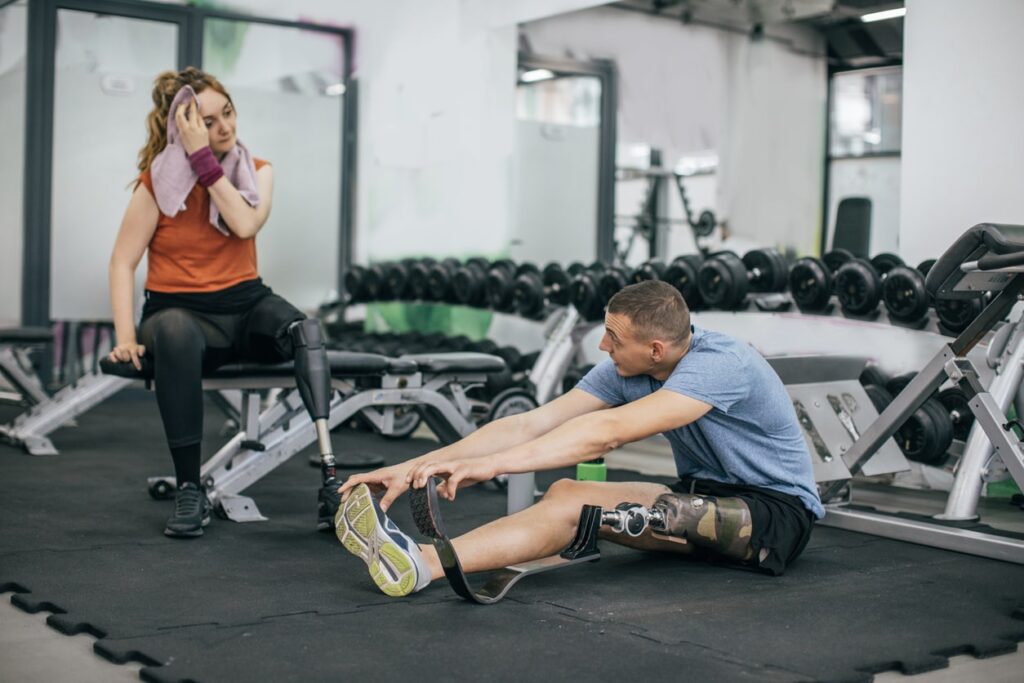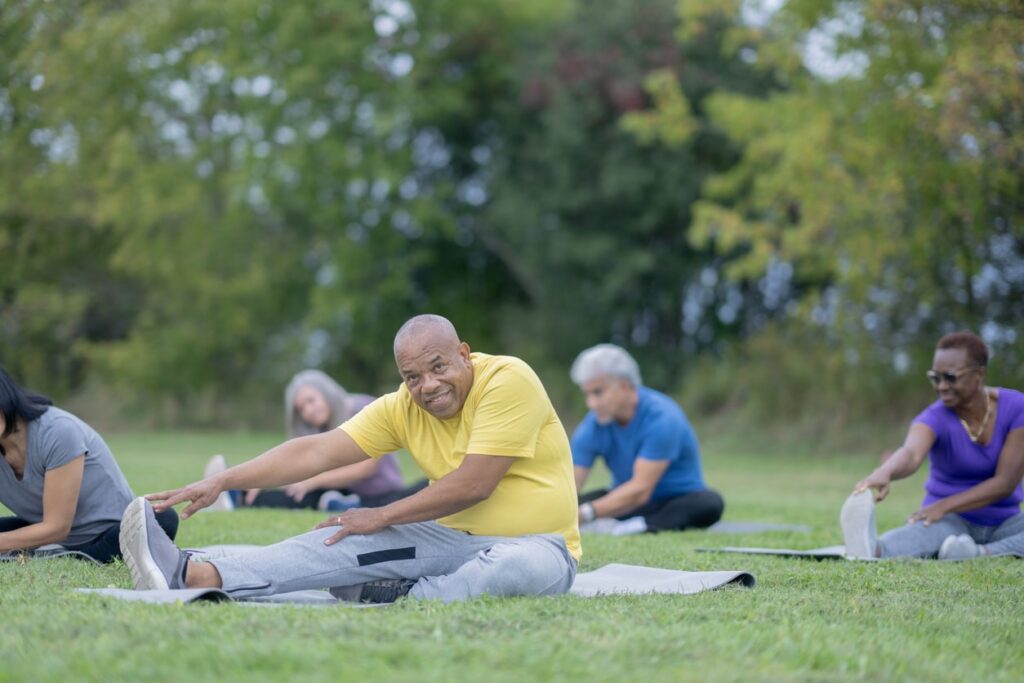Now Reading: Recovery-Focused Personal Trainers: Supporting Healing Through Fitness
-
01
Recovery-Focused Personal Trainers: Supporting Healing Through Fitness
Recovery-Focused Personal Trainers: Supporting Healing Through Fitness

Introduction
Recovery from addiction and mental health challenges requires a holistic approach, incorporating therapy, support groups, and lifestyle changes. One often-overlooked tool in the recovery journey is exercise. Engaging in physical activity can enhance mood, reduce stress, and improve overall well-being. Recovery-focused personal trainers play a crucial role in supporting individuals by designing tailored fitness programs that help with both physical and emotional healing.
This article explores how recovery-focused personal trainers assist in addiction and mental health recovery, their benefits, and what to look for when choosing the right trainer.
The Role of Recovery-Focused Personal Trainers
Unlike traditional trainers who primarily focus on weight loss, muscle gain, or athletic performance, recovery-focused personal trainers specialize in:
- Helping individuals regain physical strength after addiction or trauma.
- Creating workout plans that promote emotional stability.
- Supporting mental health through exercise and movement therapy.
- Reducing stress and anxiety with structured, goal-oriented training.
These trainers understand the emotional and physical toll of addiction and mental health struggles, offering a safe and supportive environment for recovery.
How Exercise Supports Mental Health and Addiction Recovery
Exercise is a powerful tool for mental health and addiction recovery. Here’s how it helps:
1. Boosts Mood and Reduces Stress
- Physical activity increases serotonin and dopamine levels, which are often depleted in individuals recovering from addiction.
- Exercise releases endorphins, also known as “feel-good” hormones, reducing stress and anxiety.
- Recovery-focused personal trainers design low-impact and high-impact workouts to fit each individual’s needs.
2. Helps Prevent Relapse
- Structured exercise programs create healthy routines that reduce the likelihood of returning to addictive behaviors.
- Physical activity provides a natural coping mechanism for managing cravings and withdrawal symptoms.
- Group fitness sessions offer a sense of community and support, reducing isolation.
3. Improves Sleep Patterns
- Many people in recovery struggle with insomnia or poor sleep quality.
- Regular physical activity helps regulate the sleep cycle, promoting deeper and more restorative rest.
- Recovery-focused personal trainers incorporate relaxation techniques and stretching routines to enhance sleep quality.
4. Enhances Self-Esteem and Confidence
- Addiction and mental health struggles often lead to low self-worth and body image issues.
- A personalized fitness program helps individuals set and achieve goals, boosting confidence.
- Seeing physical progress can serve as motivation to maintain sobriety and mental well-being.
5. Supports Brain Health and Cognitive Function
- Regular exercise increases blood flow to the brain, enhancing focus, memory, and decision-making skills.
- Strength training and cardio workouts help repair brain function that may have been damaged due to substance use.
- Recovery-focused trainers design cognitive-enhancing exercises like balance training and coordination drills.
The Best Types of Exercise for Recovery
Not all workouts are suitable for individuals in recovery. Recovery-focused personal trainers focus on exercises that promote mental clarity, relaxation, and physical health.
1. Yoga and Mindfulness-Based Movement
- Helps reduce stress, anxiety, and PTSD symptoms.
- Improves flexibility, balance, and mental clarity.
- Teaches breathing techniques that calm the nervous system.
2. Strength Training
- Builds physical strength and resilience.
- Boosts self-esteem and confidence.
- Enhances bone density and muscle mass after periods of inactivity due to addiction.

3. Cardiovascular Exercise (Walking, Running, Cycling)
- Supports heart health and improves endurance.
- Releases endorphins that improve mood.
- Helps regulate sleep patterns.
4. Swimming and Low-Impact Exercises
- Reduces joint pain and stiffness caused by withdrawal symptoms.
- Promotes full-body relaxation and improves circulation.
- Ideal for those with physical limitations or chronic pain.
5. Group Fitness and Outdoor Activities
- Creates a supportive community for those in recovery.
- Encourages social connection and accountability.
- Helps reduce isolation and improve motivation.
How to Choose the Right Recovery-Focused Personal Trainer
If you’re looking for a personal trainer who specializes in recovery, consider the following factors:
1. Certifications and Experience
- Look for trainers with credentials in trauma-informed fitness, mental health coaching, or addiction recovery training.
- Experience working with clients in addiction recovery or mental health treatment is a major advantage.
2. Understanding of Mental Health and Addiction
- A recovery-focused trainer should be empathetic, patient, and non-judgmental.
- They should understand how exercise impacts brain chemistry and emotional regulation.
3. Personalized Approach
- Avoid trainers who use a one-size-fits-all method.
- Look for someone who customizes workouts based on your physical abilities, emotional state, and recovery goals.
4. Encourages Balance, Not Obsession
- Over-exercising can become a new form of addiction.
- A good trainer promotes moderation, self-care, and sustainable fitness habits.
5. Supportive and Motivational Personality
- Your trainer should empower you to keep going, even on tough days.
- A recovery-focused trainer understands how to work through mental blocks and motivation dips.
Final Thoughts
Recovery-focused personal trainers play a key role in helping individuals rebuild their physical and mental strength after addiction or mental health struggles. Their specialized approach to fitness, movement therapy, and emotional well-being can make a significant difference in long-term recovery success.
By incorporating structured exercise routines, mindfulness techniques, and a supportive training environment, these professionals help individuals stay focused on their recovery goals, reduce stress, and improve overall well-being.
If you’re considering adding fitness to your recovery plan, working with a recovery-focused personal trainer may be the next step toward a healthier, stronger, and more balanced life.

Jen Sheldon is a seasoned writer with a passion for fitness, health, wellness, and addiction treatment. With years of experience crafting insightful and research-backed content, she helps readers navigate their journey toward better well-being. When she’s not writing, you’ll find her exploring new workout routines or diving into the latest health trends.


























